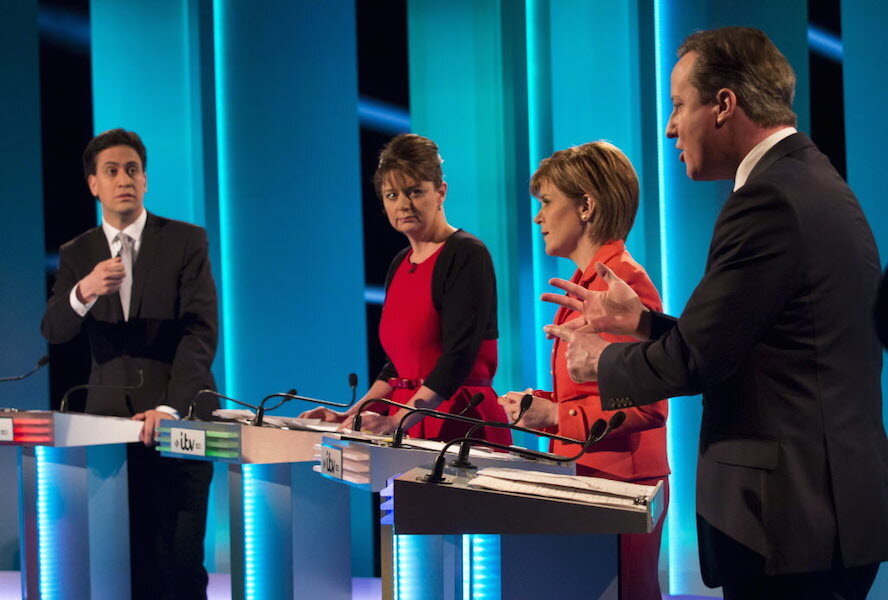Britain's identity-forming election
Walk around Britain before its May 7 election and you probably won’t hear people asking these questions about their political identity:
“Are we European?”
“Are we British?”
“Are we a great power anymore?”
Yet these existential questions hang over the election simply because of the possible outcomes. Neither the Labour Party nor the Conservative Party, which have alternated power for decades, is expected to win an outright victory. Instead, two lesser parties, which by their very nature raise such questions, could make a strong showing and then influence a new coalition in Parliament.
One is the Scottish National Party, which was able to convince 45 percent of Scots to vote for independence in a referendum last year. That near-miss in ending three centuries of union with England not only revived the party for this election but also enlivened the breakaway nationalists in Northern Ireland and Wales.
The other party, the United Kingdom Independence Party, is both anti-European Union and anti-immigrant. Its rising popularity has forced Labour and the Tories to grow cool toward the EU rather than to maintain Britain’s historical bonds with the Continent.
Conservative Prime Minister David Cameron promises a referendum on Britain’s membership in the EU, if his party wins. And Labour’s political platform on the EU under leader Ed Miliband asserts British interests against the EU consensus far more than it does the benefits of a Europe that ensures peace and a common market.
As The Economist magazine summed up about this election, “Britain has never been in such an all-round querulous state.”
Elections are usually a choice about government priorities. Indeed both the Tories and Labour have hotly debated the country’s health system and their different visions of economic policy. “Nationalism never built a single school or lifted people out of poverty,” says Mr. Miliband.
But below the surface is a contest over both being British and European, two identities that long reflected a comity of common values and that helped Britain achieve high levels of prosperity and security.
With Greece defying its EU partners over needed reforms and a divided Ukraine trying to enter the EU, this election needs to set a model. British voters must focus more on their shared identity with each other and with Europe than on differences. To retain its great-power status, Britain should look to the bonds that built its greatness.






